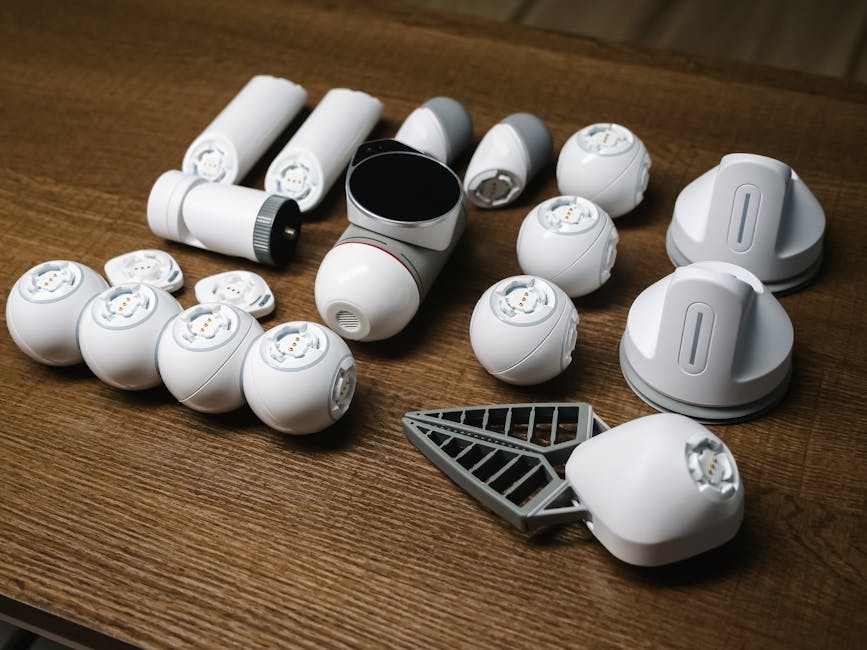Sustainability in Smart Manufacturing Practices
Did you know that smart manufacturing could reduce industrial waste by up to 30%? This exciting approach is not just about technology; it’s about making our planet healthier while boosting productivity. Lets dive into how sustainability and smart manufacturing go hand in hand.
What is Smart Manufacturing?

Smart manufacturing uses advanced technology to improve production processes. Think of robots, artificial intelligence, and the Internet of Things (IoT). These tools communicate with each other, making factories more efficient and responsive.
Picture this: your smart home device, which adjusts the temperature based on your habits, is similar to machines in a smart factory that optimize energy use automatically. This connection between technology and operations helps reduce waste and save resources.
Why is Sustainability Important in Manufacturing?

Sustainability means meeting our needs without compromising the ability of future generations to meet theirs. In manufacturing, this involves using resources wisely and reducing pollution. Heres why it matters:
- Environmental Protection: Reducing carbon emissions helps combat climate change.
- Resource Efficiency: Smart manufacturing makes better use of raw materials.
- Cost Savings: Lower energy and waste costs lead to higher profits.
These points show that sustainability isn’t just good for the planet; it’s also smart business. Companies adopting sustainable practices often see improved public perception and customer loyalty.
How Does Smart Manufacturing Support Sustainability?

Smart manufacturing supports sustainability in several ways. Lets explore some key practices:
1. Energy Management
Energy costs can eat into profits. Smart factories use energy management systems to monitor and optimize energy use. For example, sensors detect when machines are idle and automatically reduce power consumption.
Imagine a factory that adjusts it’s lighting based on the time of day. By using natural light when available, it saves a lot on electricity. This simple step makes a big difference.
2. Waste Reduction
Waste is a huge concern in manufacturing. Smart technologies can help minimize waste through precision manufacturing. This means producing only what is needed, which reduces excess materials.
- 3D Printing: This technology creates parts layer by layer, using only the necessary material.
- Predictive Maintenance: By predicting machine failures before they happen, companies can avoid costly downtime and resource waste.
For instance, a car manufacturer using 3D printing can create spare parts on-demand, avoiding wasted materials and time.
3. Supply Chain Optimization
Smart manufacturing enhances the supply chain by using data analytics. This helps companies make informed decisions about sourcing materials and managing inventory.
Consider a clothing brand that uses smart technology to track fabric usage. By analyzing data, they can adjust orders based on actual sales trends, reducing excess stock and waste.
What Role Does Technology Play in Sustainability?

Technology plays a vital role in driving sustainable manufacturing practices. Here are some examples:
Artificial Intelligence (AI)
AI helps in decision-making processes. It analyzes data to forecast demand and optimize supply chains. Imagine an AI system that predicts when to order materials, ensuring the factory runs smoothly without overstocking.
Internet of Things (IoT)
IoT devices collect data from machines in real-time. This information helps identify inefficiencies and areas for improvement. For instance, a sensor might alert operators when a machine is using more energy than usual, allowing for quick fixes.
Automation and Robotics
Automation reduces the need for manual labor in hazardous environments, improving worker safety and efficiency. Robots can perform repetitive tasks faster and more accurately than humans.
Picture a factory where robots handle heavy lifting. This not only improves safety but also allows human workers to focus on more complex tasks.
How Can Companies Measure Their Sustainability Efforts?
Measuring sustainability efforts is crucial for improvement. Here are some methods companies can use:
- Key Performance Indicators (KPIs): Track metrics like energy consumption, waste levels, and carbon emissions.
- Life Cycle Assessment (LCA): Evaluate the environmental impact of a product throughout it’s life, from production to disposal.
- Sustainability Reports: Regularly publish reports outlining sustainability goals and progress.
These tools help companies see where they are succeeding and where they need to improve.
What are Some Success Stories in Sustainable Smart Manufacturing?
Many companies lead the way in integrating sustainability with smart manufacturing. Here are a few examples:
1. Siemens
Siemens has embraced smart technology in it’s factories, focusing on energy efficiency. One of their plants in Germany reduced energy consumption by 30% through smart systems.
2. General Electric (GE)
GE uses digital twinsvirtual replicas of physical systemsto test and optimize designs. This approach lowers material waste and reduces emissions during production.
3. Toyota
Toyota implements lean manufacturing, focusing on eliminating waste throughout it’s operations. Their efforts in recycling and energy efficiency have made a significant impact on their sustainability goals.
These companies show how integrating smart technology can lead to impressive sustainability outcomes.
Addressing Common Misconceptions About Sustainability
There are many myths surrounding sustainability in manufacturing. Here are a few clarifications:
Is Sustainability Too Expensive?
Many believe that sustainable practices cost more upfront. However, the long-term savings from reduced energy and waste often outweigh initial investments. it’s a smart financial move!
Can Small Manufacturers be Sustainable?
Absolutely! Sustainability isn’t just for large companies. Small manufacturers can implement simple practices like energy-efficient lighting and waste recycling to make an impact.
What Steps Can Companies Take Right Now?
Ready to make a difference? Here are some actionable steps companies can take:
- Assess Current Practices: Take stock of energy usage, waste production, and resource management.
- Invest in Technology: Consider tools such as IoT devices and AI to optimize processes.
- Set Clear Goals: Establish measurable sustainability targets and track progress.
- Train Employees: Educate staff about the importance of sustainability and how they can contribute.
Implementing these steps can lead to a more sustainable future.
Conclusion: The Future of Sustainable Smart Manufacturing
As smart manufacturing continues to evolve, so will the opportunities for sustainability. Companies that embrace this change will not only help our planet but also improve their bottom line.
By using technology wisely, manufacturers can create a more sustainable future. Every step towards sustainability matters, no matter how small. Lets keep pushing for a smarter and greener manufacturing industry!
For more information on sustainability in manufacturing, check out this article from the National Institute of Standards and Technology.

